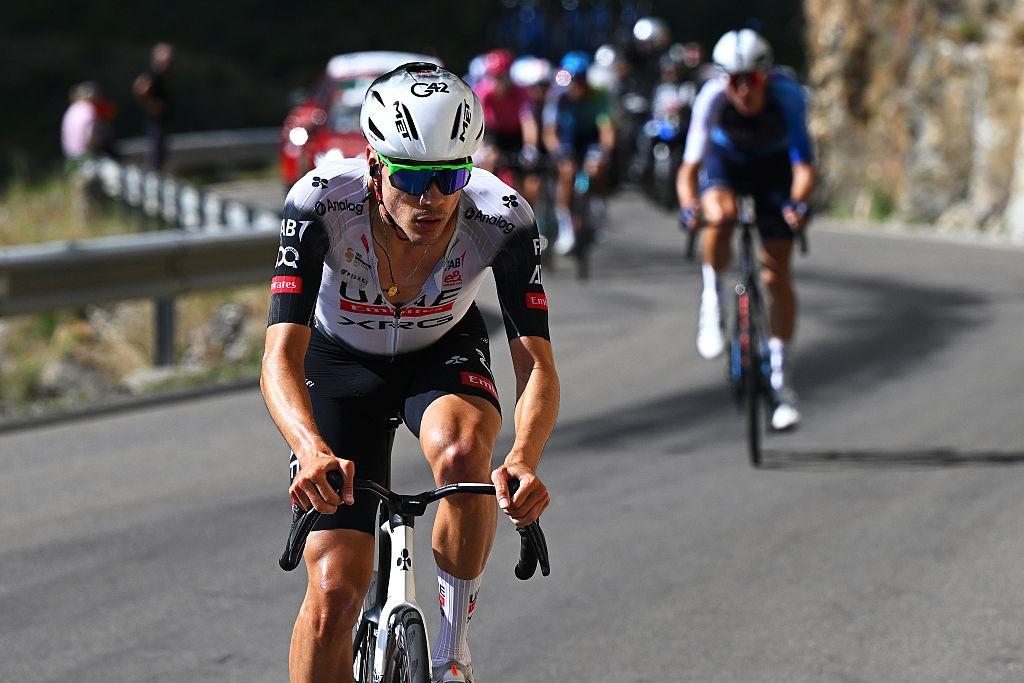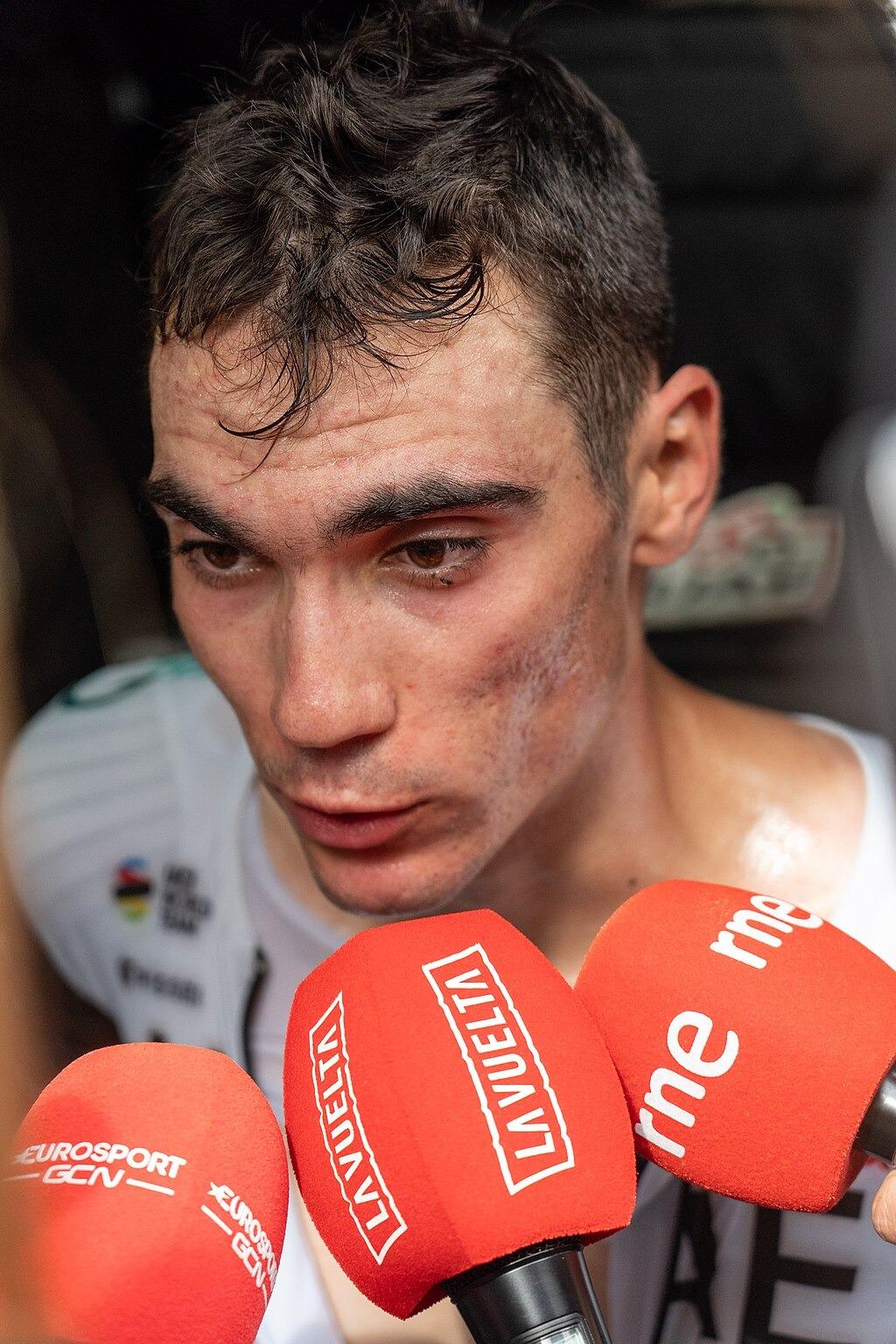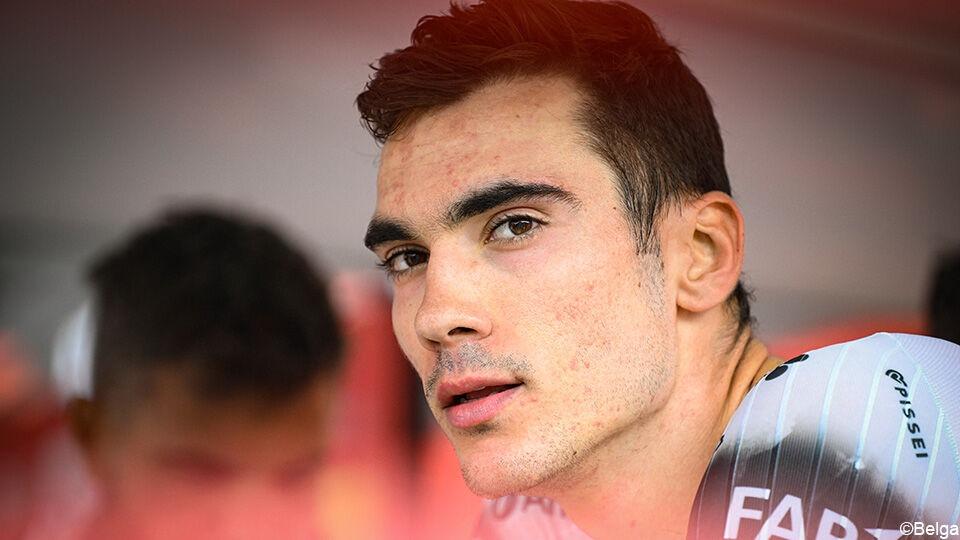At only 23 years old, Spanish prodigy Juan Ayuso has ignited one of the biggest shocks in recent professional cycling by announcing his departure from UAE Team Emirates, the powerhouse squad that nurtured his rise. Ayuso, once hailed as the future of the team alongside Tadej Pogačar, stunned fans and insiders alike by choosing to leave the comfort, resources, and prestige of one of the sport’s most admired outfits. In an era when most young talents cling tightly to established teams for security, his decision represents a bold, even defiant, rejection of convention.

The timing has amplified the impact. With the new season looming, UAE Team Emirates finds itself scrambling to adjust its roster and leadership structure. Ayuso was widely seen as a critical pillar for stage racing campaigns, a rider capable of challenging for podiums in the Grand Tours and securing long-term dominance for the team. Now, with his sudden exit, a vacuum of both talent and strategy has opened, forcing management to recalibrate their ambitions just as rivals prepare their own assaults on the cycling calendar.

Meanwhile, Lidl–Trek has emerged as the unexpected beneficiary of this upheaval. Long regarded as a solid but unspectacular presence in the peloton, the team has been steadily investing in young riders and innovative training systems. According to sources close to the negotiations, Lidl–Trek had been courting Ayuso quietly for months, promising not only a leadership role but also a supportive environment where he could develop without the shadow of a dominant star like Pogačar. For Ayuso, the move signals a chance to step out from the wings and command his own destiny.
This high-stakes transfer has sparked fierce debate across the cycling world. Some view Ayuso’s choice as an act of betrayal against a team that gave him his big break, particularly given the loyalty UAE has shown in nurturing its talents. Others see it as a courageous assertion of independence by a young rider unwilling to be second fiddle indefinitely. Cycling forums and social media channels are ablaze with speculation about how the shift will alter the balance of power in the Grand Tours.

Lidl–Trek’s strategy is becoming clearer with each passing day. By adding Ayuso to a roster already rich in climbers and all-rounders, the team is positioning itself to challenge the traditional hierarchy of the peloton. Insiders hint at a meticulously planned Grand Tour campaign, leveraging Ayuso’s explosiveness and versatility to disrupt UAE’s and Jumbo–Visma’s dominance. The move, once seen as improbable, now looks like a masterstroke that could redefine the narrative of the 2025 season.

For UAE, the loss of Ayuso is more than just a personnel issue; it is a test of resilience and adaptability. The squad will need to reinforce its support for Pogačar and accelerate the development of younger prospects to fill the void. For Ayuso, however, it is the start of a new chapter – one in which the risks are enormous but the rewards could be career-defining.
As the countdown to the new season ticks down, the cycling world is holding its breath. Juan Ayuso’s departure has already changed the conversation, and his first pedal strokes in Lidl–Trek colours will be scrutinised as a symbol of ambition, disruption, and perhaps the beginning of a new era in Grand Tour racing.